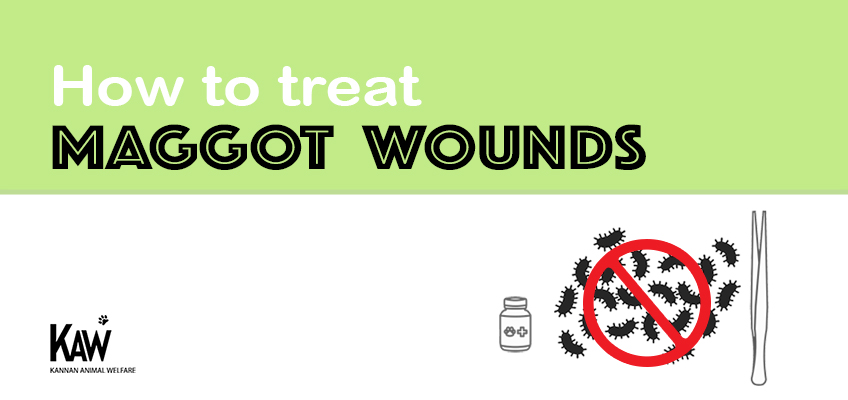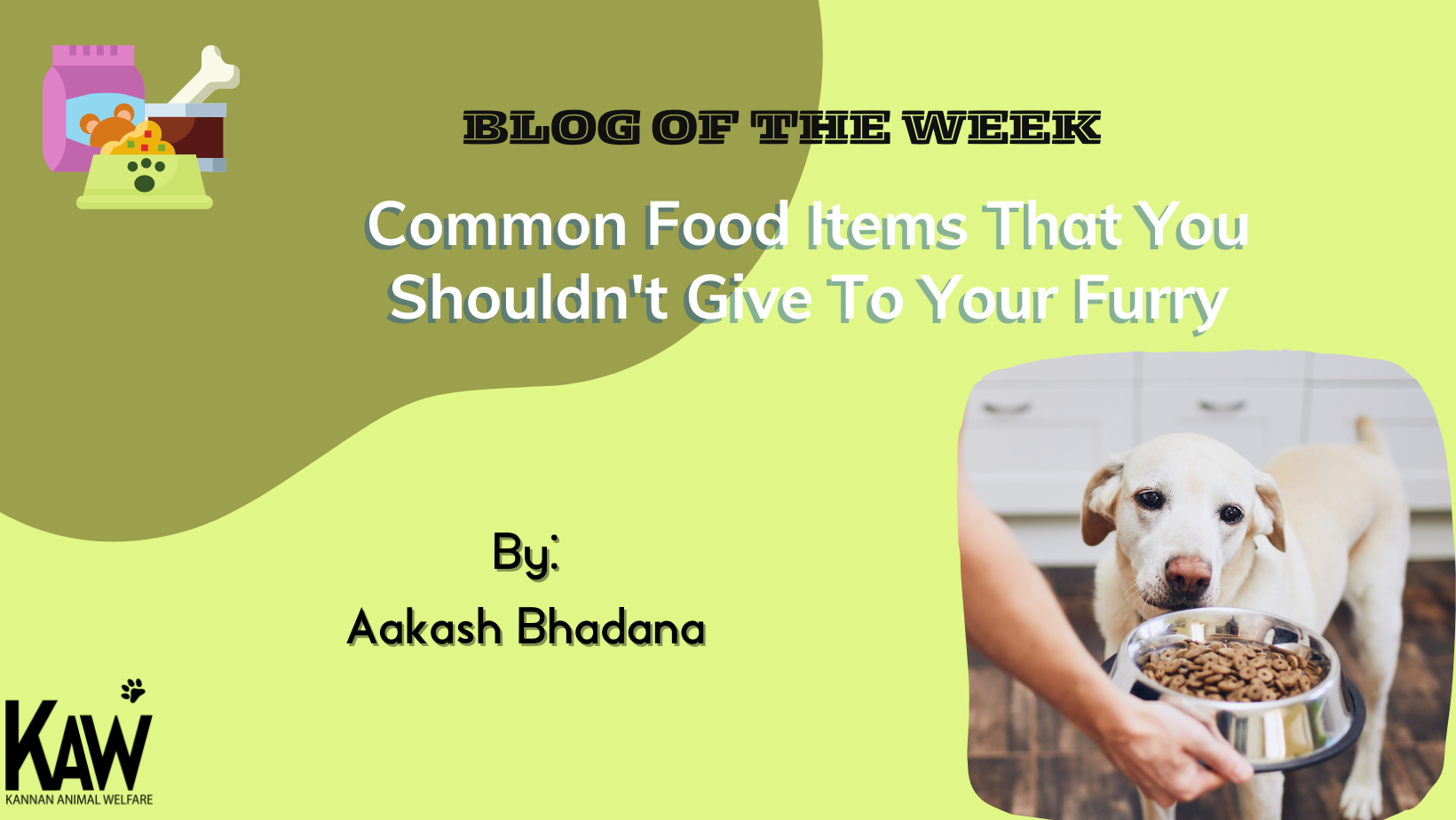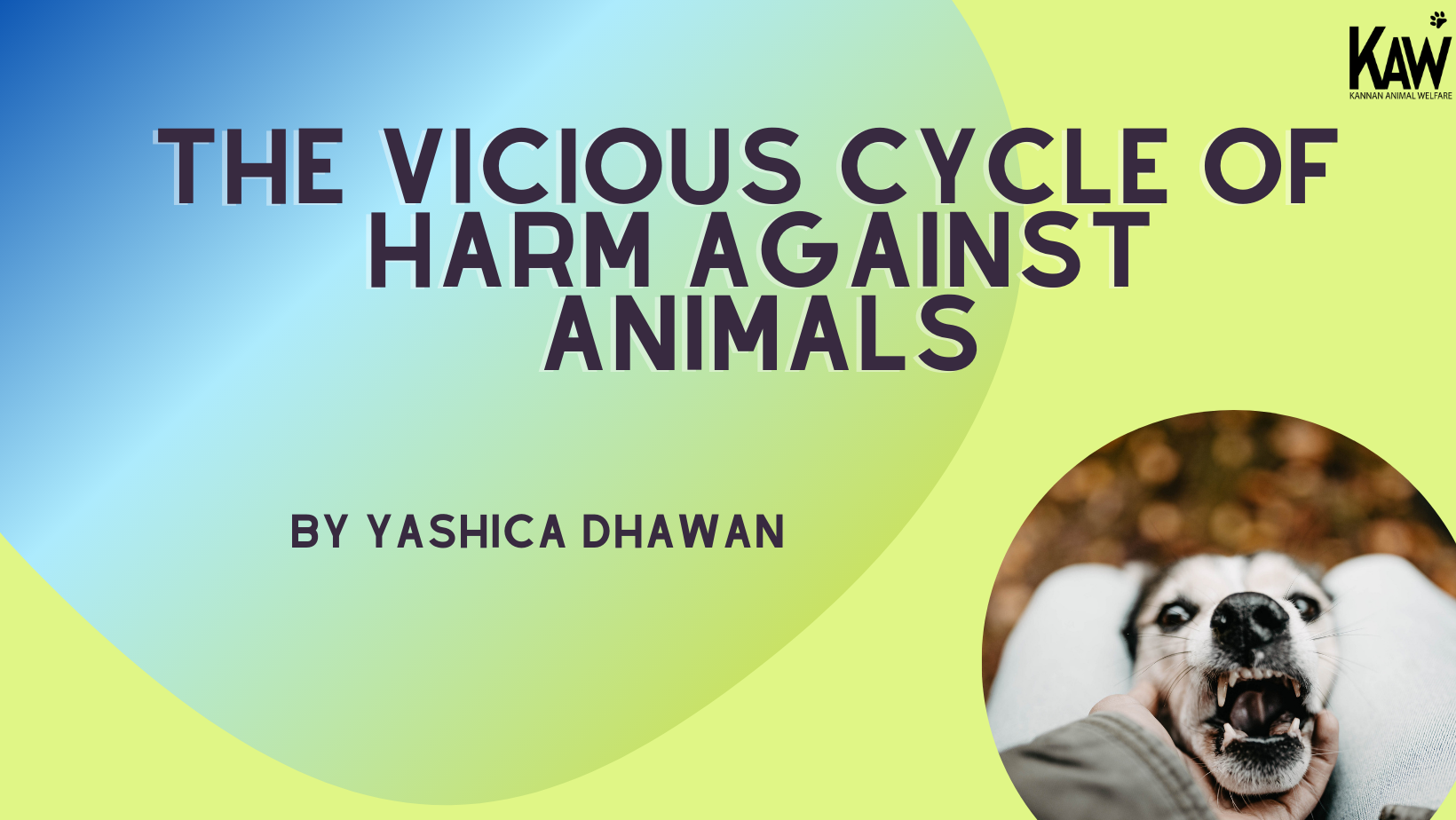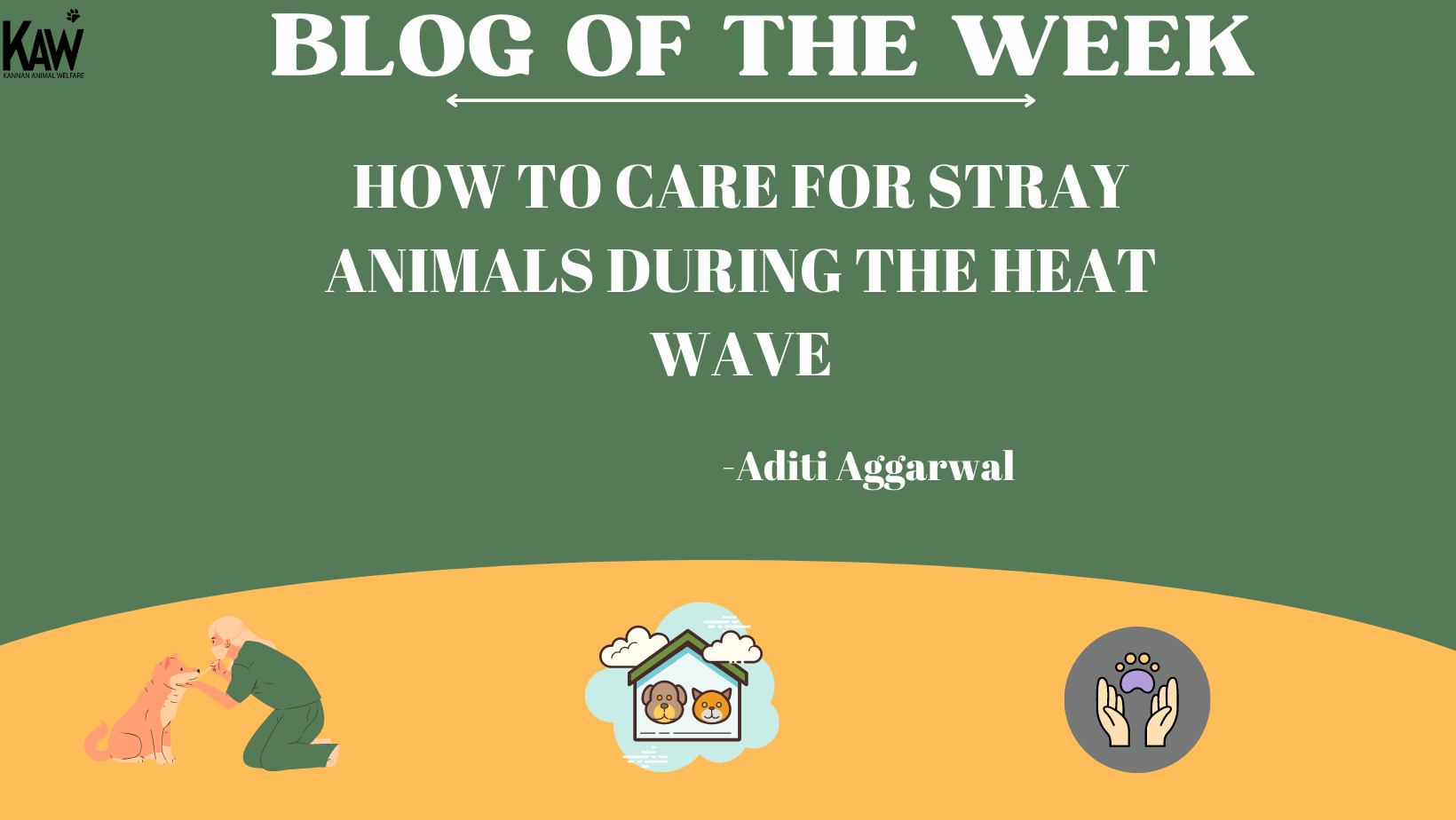What are maggots?
A maggot is the larva of a fly. Flies become attracted to rotting material or spoiled food and use that as a breeding ground to lay their eggs, which hatch to become maggots.
How do maggot wounds occur within animals?
The larvae, or maggots, feed on the animal's flesh, enlarging an open wound. Maggots start off minuscule in size but can grow to a length of half an inch or longer in a few days. They generally lay 50-300 eggs at a time and at skin temperature these hatch around 8-12 hours later.
What part of the year are they most common?
Maggot wounds are more common in summer, humid weather, or during monsoon.
How can they impact the animal?
Left untreated, maggot wounds are fatal as the animal may die due to the maggots tunneling into their brain or vital organs (depending on the site of the wound), blood loss or secondary infections.
How long is the course of treatment for a maggot wound?
Usually, the treatment for a maggot wound lasts about 1-2weeks (depending on the severity and size of it). For the wound and tissue to completely heal and regenerate, it can go up to 1 month of treatment/care for small-sized maggot wounds.
What medicines should be used to treat maggot wounds?
List of medicines for maggot wounds:
- Hydrogen peroxide flushing/ cleaning
- Hand removal of maggots
- This is followed by putting Neosporin or Negasunt powder on the wound site
- Apply a thick paste of himax ointment or use Dmag spray once a day
- Augmentin 375mg once a day
- Neomac 1 tab every 4-7 days depending on dogs health
- Malobest 2.5mg
- Liv52 tonic
- Topicure spray after healing
How should the wound be cleaned?
Pour hydrogen peroxide directly and pick out the maggots by hand. Once you’ve removed the maggots visible on the top, stuff the wound site with cotton wool. This will suffocate and kill the remaining maggots if any.
What should not be used on the wound?
Please do not put painter’s Turpentine oil, kerosene oil, petrol, phenyl, bleach, boiling water etc in the wound.
When should a maggot wound not be self-treated?
If the wound is deeper than an inch, near or on the head, rectum, vagina/penis, inside the mouth do not attempt to self treat it without consulting a vet.
Keep in mind:
While committing to taking care of a dog is a very noble cause, sometimes not knowing enough can be harmful and life-threatening. If you’re attempting to self-treat a dog, please reach out to a vet or shelter for guidance. Once the vet approves of treatment on spot based on the severity of the wound, begin with the given/suggested prescription.
When starting the treatment, it’s always preferred to tie up the dog because it may try to run away. If the dog is aggressive or reluctant, you may also use a muzzle to avoid any accident.
While the dog is on treatment for maggots, it will require a good diet because the blood level may have fluctuate and the medicines for the treatment are also strong antibiotics. If the dog isn’t showing signs of recovery, please visit a vet.
Disclaimer: PLEASE NOTE THESE ARE THE MEDICINES WE HAVE FOUND MOST EFFECTIVE AND ARE AVAILABLE AT MOST PET SHOPS. IT IS ALWAYS RECOMMENDED TO CONSULT TO A VET FOR A BLOOD TEST AND PRESCRIPTION.






